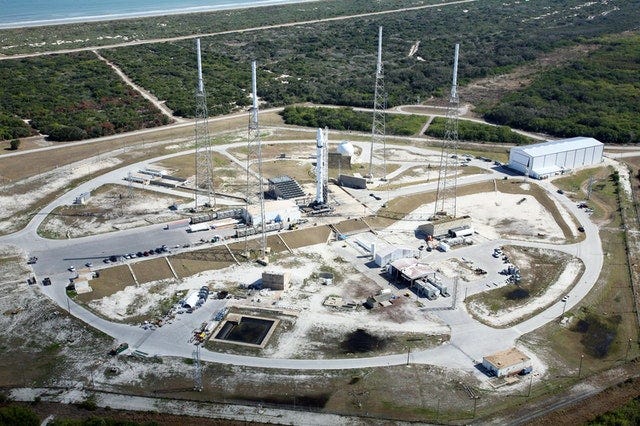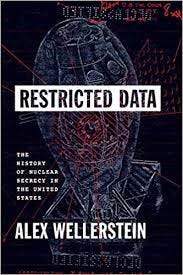I’m Paul Musgrave, a political scientist and writer. This is Systematic Hatreds, my newsletter about my thoughts regarding politics and the study of politics. The newsletter takes its title from a line in The Education of Henry Adams:
Politics, as a practice, whatever its professions, had always been the systematic organization of hatreds.
This week, we’re talking about the politics of space exploration.
Facts Don’t Care About Your Inspiration
Richard Branson and a crew of employees (kind of) went to space over the weekend. Opinions ranged from sincere admiration for Virgin Galactic’s attempt to “democratize” space by making tourism to the edge of the atmosphere more affordable to mockery of the idea that pricing a brief jaunt to what didn’t really used to be considered “space” at a cost of hundreds of thousands of dollars constituted “democratization” at all.
Branson’s journey, soon to be matched by Jeff Bezos’s suborbital toss in a Blue One spaceship, is the most recent episode in what we might call Billionaires in Space. Branson, Bezos, and the much more successful Elon Musk have poured billions into making private spaceflight a reality, with Musk’s SpaceX setting the pace with his ambitious and genuinely revolutionary reusable rockets. (It should be noted that a good chunk of the credit for SpaceX apparently should go to corporate president Gwynne Shotwell, who is lower-profile than Musk—although who isn’t.)
The vision of oligarchs conquering the heavens while the earth burns has launched a thousand takes on rose twitter. The more geopolitically minded note that the billionaires are grabbing the headlines but that the United States and China are quietly, and without any particular popular enthusiasm as far as I can tell. (A 2019 Gallup poll found 53 percent in favor of a US crewed trip to Mars, and a poll by CBS News found 71 percent in of returning astronauts to the Moon, but without mentioning a cost number I think we can say that those figures are as soft as can be.) But it has also re-launched a perennial debate about what the purpose of human space travel is, anyway.
There appear to be five camps, broadly speaking:
colonists/catastrophists who believe that space exploration is meaningful because it will lead to colonization of Mars and then Alpha Centauri or something (billionaires and apocalypse-poisoned fanboys)
pragmatists/profiteers who think that space exploration has potential commercial advantages—perhaps as tourism but also the perennial idea of zero-g manufacturing, asteroid mining, and so on (a mix of accountants and speculators)
explorers/scientists who stress the advantages of putting humans in space (or on Mars and elsewhere) to do more rigorous and efficient science (nice people, occasionally persuasive, resistant to analyses of alternatives)
prestige junkies who want to make sure that the American flag flies wherever possible, from Midway Island to Mars (a minority camp)
killjoys like me who think that space is great—as long as we send robots, because the costs of putting homo sapiens on other planets is far too high for any benefits to be realized even in the next century or two
A surprising number of the space billionaires fall into the first camp, rather than the profit-seeking camp, even if (like Bezos and Musk) they also sniff profits in the exploration of the “high frontier”. Colonizing Mars is, like a bolthole in New Zealand, a way for the plutocrats to envision their wealth buying them privilege on a scale beyond that of humanity’s reign on earth.
Advocates for space exploration, of course, are willing to use any means necessary to advance their cause, although in general they tend to be either colonists or explorers who are willing to make common cause with the prestige junkies and the profiteers. And so one often finds self-appointed defenders of billionaires justifying these expenditures as first steps toward some idealized colonization spree. Even if Musk and Bezos have a poor track record of protecting workers on Earth, surely they have altruistic visions for a post-terran civilization, the argument goes. At the very least, putting humans into space is inspirational, and that justifies everything.
There’s a lot of STEM puffery around the idea that putting humans! in space! will inspire folks to learn science or become engineers, but it’s never clear how whom space travel is inspiring to do what or why we should value it—and how much.
At the very least, claims that space travel is worth the fantastic amounts of money that advocates want us to spend require fantastic evidence. The available data, however, suggests that I’m not alone in viewing space as less inspirational than Boomers remember it as being. A June 2019 poll (forty years after Apollo 11) found
only 31 percent of Americans would personally like to go to the Moon
only 36 percent viewed it as “very important” that the United States put the first woman on the Moon (a highlight of the current NASA lunar push)
71 percent favored sending astronauts back to the Moon in general—but when asked a separate question that mentioned that NASA had asked for an additional $1.6 billion for Moon-related landings, 52 percent of respondents thought that it was better spent on something else. (Had the question mentioned the true cost of another lunar landing, which will run to the tens of billions, presumably support would plunge)
48 percent said the United States needs to be a world leader in space—but 43 percent were fine with being involved in space exploration, without leading
These are not polling results from a country whose imagination is fired by space. Space is fine; space is good; space is useful; but space travel isn’t THE FUTURE in the big block letters advocates imply it is.
Indeed, if anything, space today is pedestrian. The heavens are so full of satellites that worrying about light pollution caused by massive chains of satellites is a real concern—as is the possibility that increasing amounts of debris will choke off access to space (yes, we have managed to pollute even the area around the earth). And having just suffered a major public health cataclysm, the notion that our species will be saved by science is at once plausible (mRNA vaccines!) and ludicrous (vaccine resistance!). Presumably, there will be a flat-Earth society in the Mars colonies.
For me, at least, the record of human space travel in my lifetime hasn’t been inspiring of anything except cynicism for how bureaucrats fail to address failures. Like any good child of the Eighties, I grew up with the space shuttle and pictures of astronauts exploring space—but also with the tragedies of the Challenger and then the Columbia. For me, although I can’t say that this is a generational observation, human space exploration has seemed to be a nice-to-have marred by the utter disinterest of management in keeping astronauts safe—and without any particularly obvious return on the massive investment we’ve made in human space exploration.
Those are the facts of the U.S. space program as I’ve known it. And the fact that the United States pretty quickly grew bored of the Apollo program, despite a propaganda push that NASA has never come close to duplicating, suggests that my disposition is not a lonely one. Inspiration is nice, but there are lots of ways to inspire people at a lot less cost for much better defined purposes.
(Every other facet of space activity, by the way, has a much clearer case, from the pure science of deep-space or planetary robotic probes to the commercial and governmental applications of Earth observation and communications satellites. But nobody says those are inspiring.)
What has inspired me in the STEM world are more immediate, useful, and even mundane advances: iPhones, the Internet, Pfizer-BioNTech, and the decoding of the human genome (and now of proteins as well). There’s a reason that the Endless Frontier Act is about terrestrial tech rather than the high frontier of space. I’m never going to live on Mars, but I can live on a better Earth. And the quickest way to improving our life down here is to spend money on tech that will fix the climate, the supply chain, and agriculture.
What I’m Reading
This week, I’ve been reading Alex Wellerstein’s Restricted Data: The History of Nuclear Secrecy in the United States.
Wellerstein, a history of science and technology, asks why the “secret” of nuclear weapons became the focus for an extensive array of governmental secrecy. After all, the “secret” of atomic weaponry is, as a scientific discovery, in principle discoverable to all. To be sure, specific innovations and “know-how” necessary to weaponize fission and fusion may be difficult to replicate from first principles, and the possession of particular documents or knowledge can speed up a nuclear program. Yet the complex world of secrets and classification in the executive branch that emerged after the Second World War—in which atomic knowledge received its own classification of “restricted data”, which is legally “born secret”—goes far beyond that, to include the restriction of what must be by now billions of documents and the evaluation of the reliability of employees, contractors, researchers, and others. All, it must be said, with little direct evidence for its efficacy, given that the Manhattan Project was compromised from the beginning—much less efficacy compared to controls on fissile materials and other technologies and material resources.
Wellerstein crafts a story that shows that secrecy has long offered political advantages, but not necessarily the kind that international-relations theory or naive security studies argumentation might anticipate. The initial secrecy surrounding the Manhattan Project enabled the project to escape not only Nazi awareness but also any sort of democratic accountability. FDR limited knowledge of the program to a handful of aides, and even most of the hundreds of thousands of people who worked on the project’s many components had no clear idea of what was going on. Still less did Congress have the opportunity to participate in shaping atomic policy or even providing oversight of how the billions of dollars the project required were spent. Aside from operational security, then, secrecy enabled the executive branch to evade any sort of democratic accountability.
The idea of the “secret” of the atomic bomb, something widely disparaged within the nuclear fraternity, quickly became a political football as the atomic monopoly appeared to provide the United States with special leverage even beyond that afforded by the simple possession of the bomb. Cold War suspicion, enhanced by the rapid Soviet development of atomic and then nuclear weapons, paradoxically reinforced the idea that the secret had to be kept even tighter, even though the horse had clearly galloped out of the barn by then. The result was an ever-widening set of practices of security and restriction that eventually left the nuclear project mysterious, widely misunderstood, and vulnerable to dramatic “revelations” that somehow made the nuclear enterprise more mysterious than prosaic.
Wellerstein is a prolific translator of nuclear concepts for the masses, and this long-awaited book manages to do something that I had thought difficult: tell us something new, important, and nonobvious about how nuclear weapons from the Manhattan Project onward have related to society.




